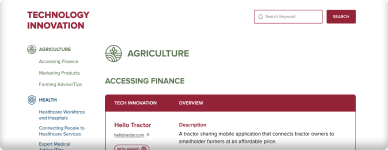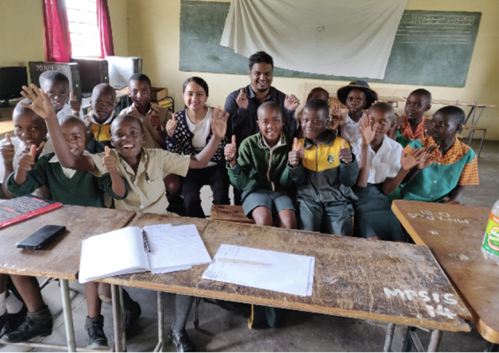What competencies do teachers require to implement a 21st century curriculum in Zimbabwe? What are effective strategies for curriculum delivery in a classroom with high teacher-pupil ratios in Kenya? Which social determinants have the biggest impacts on maternal mortality in the Gambia? What are the root causes of drug stock-outs in eSwatini? This past academic year, over 83 Harvard graduate students set out to answer these policy research questions and more through the Harvard Ministerial Student Policy Research Program.
Harvard Ministerial ‘Alumni’ Ministers submitted policy research questions to help inform their decision making around achieving their major policy goals. As the academic year began, Harvard graduate students were eager to dig into these research questions, with support from faculty advisors Professors Fernando Reimers and Rifat Atun, in an effort to support the Ministries while engaging in an applied research experience to supplement their academic program.
After conducting remote research for approximately three months followed by an immersive three-week in-country research experience in January 2020, students prepared comprehensive policy reports to respond to their respective Ministries’ research questions. In total, 21 reports were presented to 18 Ministries across 11 African countries.
For students, the experience was about far more than the deliverable. Many students cited the practical learning methodology as something that could not be experienced in the classroom:

“Learning through experience on the ground is something that cannot be replaced with any other form of learning. On the ground work forced me to put my skills and knowledge in practice that has been extremely valuable for me.”
“Interactions and meetings with Cabinet Secretary and high-level government officials was very educational. In-country field research component was informative and complemented my academic coursework learnings.”
“The in-country research contextualized what I was learning in class.”
Students reported that the experience was particularly valuable to the process of charting their future careers:
“For me, the MLP program was my first introduction to what a public health profession could look like.”
“It pushed me out of my comfort zone as a pure academic/researcher.”
“I feel comfortable working in an international context and feel good about consulting or researching in the future.”
Other students reported they gained professional soft skills and greater understanding of the logistics of working with government, often times in very resource constrained settings:
“I think I got to see the real world functions of how things work on the ground. This experience taught me firsthand how having clear cut plans that are well organized doesn’t always translate to clear implementation on the ground. There are many hurdles that need to be surmounted and sometimes being flexible to working with the available resources is key to getting some work done.”
“The experience I gained communicating and engaging with a Ministry was particularly useful, as I developed a better understanding of the timeline, expectations, and dynamics of consulting with government officials.”
As the Student Policy Research Program continues to grow, there are many considerations to ensuring academic and logistical support provided by the Program grows in tandem. For the upcoming academic year, without the possibility of travel to Africa due to the continuing COVID-19 pandemic, the Program will structure virtual research opportunities for students.



